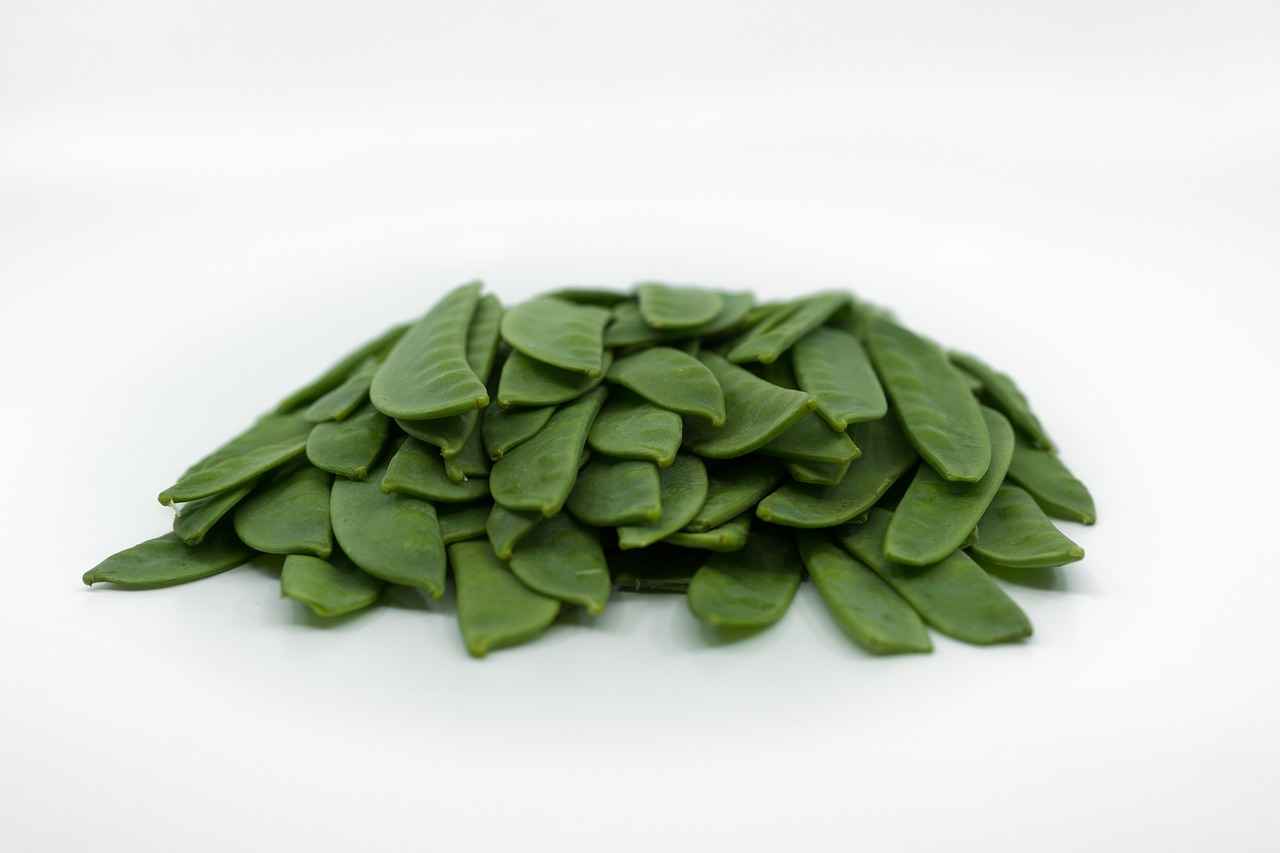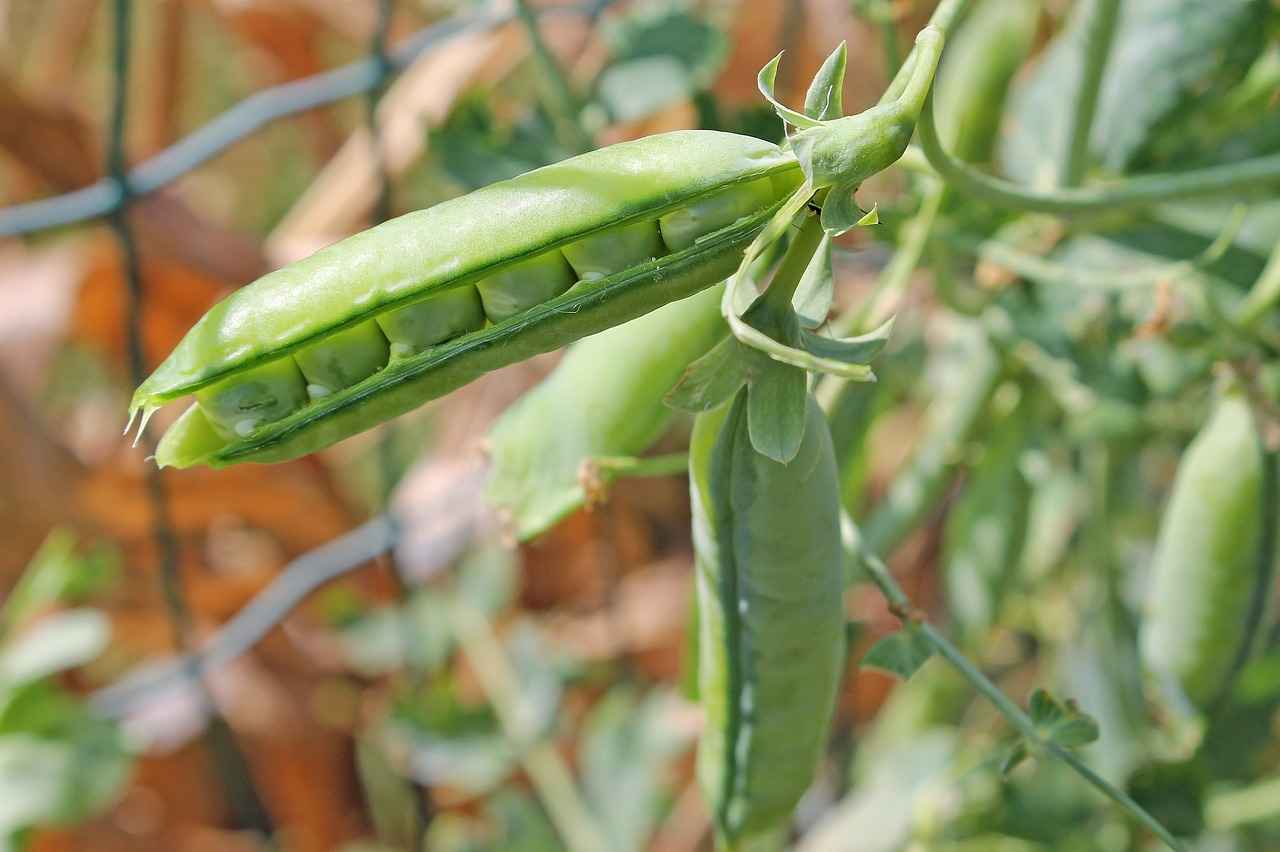This article delves into the benefits of pea protein for muscle building and recovery, highlighting its impressive nutritional profile, advantages over other protein sources, and practical applications for fitness enthusiasts.
What is Pea Protein?
Pea protein is a plant-based protein extracted from yellow split peas. It is renowned for its high protein content and rich supply of essential amino acids, making it a favored option among athletes and individuals focused on health.
Benefits of Pea Protein for Muscle Building
Pea protein is instrumental in supporting muscle growth due to its robust amino acid profile, particularly rich in branched-chain amino acids (BCAAs). These amino acids are vital for muscle repair and development following exercise.
Amino Acid Profile of Pea Protein
This protein source contains all nine essential amino acids, although it is somewhat lower in methionine. Its high levels of BCAAs, especially leucine, contribute to effective muscle synthesis.
Comparison with Animal Proteins
While animal proteins, such as whey, are considered complete, pea protein provides a plant-based alternative that can be equally effective for muscle building, particularly for those following vegetarian or vegan diets.
Digestibility and Absorption
Pea protein is notably easy to digest, ensuring that the body can effectively absorb and utilize its amino acids for muscle repair and growth, making it an excellent choice for post-workout recovery.
How Pea Protein Aids Recovery
Pea protein assists in muscle recovery by minimizing muscle soreness and inflammation, promoting quicker recovery times after intense workouts, and enhancing overall athletic performance.
Pea Protein vs. Other Plant Proteins
When compared to other plant-based proteins like soy or rice, pea protein excels due to its superior protein content and amino acid profile, making it a top choice for muscle recovery.
Environmental Impact of Pea Protein
Opting for pea protein is also an environmentally conscious decision, as it demands fewer resources and generates lower greenhouse gas emissions compared to animal protein sources.
Allergies and Dietary Restrictions
Pea protein is hypoallergenic, making it suitable for individuals with allergies to dairy, gluten, or soy. Its versatility allows it to fit seamlessly into various diets, including vegan and vegetarian lifestyles.
How to Incorporate Pea Protein into Your Diet
Integrating pea protein into your daily meals is straightforward; it can be added to smoothies, baked goods, or protein bars, providing a convenient way to enhance protein intake.
Recipes Featuring Pea Protein
- Pea protein pancakes
- Pea protein smoothies
- Pea protein energy balls
These delicious recipes not only enrich your diet but also deliver the muscle-building benefits of this plant-based protein source.
Choosing the Right Pea Protein Supplement
When selecting a pea protein supplement, consider factors such as purity, added ingredients, and brand reputation to ensure you choose a high-quality product that aligns with your fitness goals.

What is Pea Protein?
Pea protein is a highly regarded plant-based protein source derived from yellow split peas. Its popularity has surged among athletes, fitness enthusiasts, and health-conscious individuals due to its impressive nutritional profile. With a protein content that rivals many traditional sources, pea protein is not only rich in essential amino acids but also offers a host of additional benefits that make it an attractive option for those looking to enhance their diet.
Pea protein is extracted from yellow split peas, which are a type of legume. This protein source is celebrated for its high protein content, typically containing around 20-25 grams of protein per 30-gram serving. Pea protein is also a complete protein, meaning it contains all nine essential amino acids that the body cannot synthesize on its own. However, it is slightly lower in the amino acid methionine compared to some animal proteins.
One of the primary benefits of pea protein is its ability to support muscle growth. This is largely attributed to its rich amino acid profile, particularly the presence of branched-chain amino acids (BCAAs) such as leucine, which play a crucial role in muscle repair and development following exercise.
Pea protein contains a balanced array of amino acids, making it an excellent choice for muscle synthesis. The high levels of BCAAs facilitate muscle recovery and growth, ensuring that athletes can maintain their performance levels.
While animal proteins, such as whey, are often considered the gold standard for muscle building, pea protein provides a viable plant-based alternative. It can be equally effective for muscle development, especially for those adhering to vegetarian or vegan diets.
Another advantage of pea protein is its digestibility. It is easily absorbed by the body, allowing for efficient utilization of its amino acids, which is particularly beneficial for post-workout recovery.
Pea protein not only aids in muscle building but also helps in reducing muscle soreness and inflammation. This can lead to faster recovery times after intense workouts, enhancing overall athletic performance.
When compared to other plant-based proteins, such as soy or rice, pea protein stands out due to its superior amino acid profile and higher protein content. This makes it a top choice for those focused on muscle recovery and building.
Pea protein is also an environmentally friendly option, requiring fewer resources and producing lower greenhouse gas emissions compared to animal protein sources. This aspect appeals to eco-conscious consumers looking to make sustainable dietary choices.
Hypoallergenic in nature, pea protein is suitable for individuals with allergies to dairy, gluten, or soy. It can seamlessly fit into various diets, including vegan and vegetarian lifestyles.
Incorporating pea protein into your daily routine is simple. It can be added to smoothies, baked goods, or protein bars, providing a convenient way to boost your protein intake without compromising on taste.
Delicious recipes such as pea protein pancakes, smoothies, and energy balls can enhance your diet while delivering the muscle-building benefits of this plant-based protein source.
When selecting a pea protein supplement, consider factors such as purity, added ingredients, and brand reputation. This ensures that you choose a high-quality product that aligns with your fitness goals.

Benefits of Pea Protein for Muscle Building
The Muscle-Building and Recovery Power of Pea Protein
Pea protein has emerged as a popular choice among fitness enthusiasts and health-conscious individuals alike. Its nutritional profile is particularly beneficial for muscle building and recovery, making it an excellent alternative to traditional animal-based proteins.
Pea protein supports muscle growth due to its rich amino acid profile, which includes essential amino acids necessary for muscle repair and development. One of the standout features of pea protein is its high concentration of branched-chain amino acids (BCAAs). These amino acids, especially leucine, play a critical role in stimulating muscle protein synthesis, which is vital for recovery after exercise.
In comparison to other protein sources, pea protein is not only effective but also offers several advantages:
- Complete Amino Acid Profile: Pea protein contains all nine essential amino acids, although it is slightly lower in methionine.
- Plant-Based Alternative: For vegetarians and vegans, pea protein provides a viable option without sacrificing muscle-building benefits.
- Digestibility: Pea protein is easily digestible, allowing for quick absorption of amino acids, which is crucial for post-workout recovery.
How Pea Protein Aids Recovery
In addition to supporting muscle growth, pea protein is effective in aiding recovery. It has been shown to reduce muscle soreness and inflammation, enabling athletes to bounce back faster after intense workouts. This quick recovery not only enhances overall performance but also encourages consistent training without prolonged downtime.
Incorporating Pea Protein into Your Diet
Integrating pea protein into your daily routine is simple and versatile. It can be added to:
- Smoothies
- Baked goods
- Protein bars
With its neutral flavor, pea protein can enhance various recipes while providing essential nutrients for muscle growth and recovery.
In conclusion, pea protein stands out as a powerful ally in muscle building and recovery. Its rich amino acid profile, digestibility, and plant-based nature make it an excellent choice for anyone looking to enhance their fitness journey.
Amino Acid Profile of Pea Protein
The Muscle-Building and Recovery Power of Pea Protein
Pea protein has gained significant attention in the health and fitness community, particularly for its role in muscle building and recovery. This plant-based protein source is derived from yellow split peas and is celebrated for its impressive nutritional profile. In this article, we will delve into the amino acid profile of pea protein, its benefits for muscle synthesis, and how it compares to other protein sources.
One of the standout features of pea protein is that it contains all nine essential amino acids, making it a complete protein. However, it is important to note that it is relatively lower in methionine compared to some animal proteins. Despite this, pea protein is particularly rich in branched-chain amino acids (BCAAs), especially leucine, which plays a critical role in muscle protein synthesis.
The presence of high levels of BCAAs in pea protein makes it an excellent choice for athletes and fitness enthusiasts looking to enhance their muscle growth and recovery. Research indicates that leucine is vital for stimulating muscle protein synthesis, which is essential for post-workout recovery and muscle repair.
Benefits of Pea Protein for Muscle Building
- Supports muscle growth due to its rich amino acid profile.
- Helps in muscle recovery by reducing soreness and inflammation.
- Offers a plant-based alternative for those avoiding animal proteins.
Moreover, pea protein is easily digestible, which means that the body can efficiently absorb its amino acids. This characteristic is particularly beneficial for post-workout recovery, enabling faster muscle repair and growth.
Conclusion
In summary, pea protein stands out as a powerful ally for muscle building and recovery. Its complete amino acid profile, high BCAA content, and digestibility make it a valuable addition to any athlete’s diet. Whether you are a seasoned bodybuilder or a casual fitness enthusiast, incorporating pea protein can help you achieve your fitness goals effectively.
Comparison with Animal Proteins
When evaluating protein sources for muscle building, animal proteins have long been regarded as the gold standard. However, pea protein has emerged as a formidable plant-based alternative that offers numerous advantages, particularly for those following vegetarian or vegan diets.
Complete Protein Source
While it is true that animal proteins like whey are considered complete proteins due to their comprehensive amino acid profiles, pea protein also contains a significant amount of essential amino acids. It is particularly rich in branched-chain amino acids (BCAAs), which are vital for muscle repair and growth. Although pea protein is slightly lower in methionine, it still provides a balanced amino acid profile that supports muscle synthesis effectively.
Digestibility and Absorption
One of the key advantages of pea protein over animal-based options is its digestibility. Studies indicate that pea protein is easily absorbed by the body, allowing for efficient utilization of its amino acids, especially post-exercise. This makes it an excellent choice for recovery, similar to whey protein, without the potential digestive discomfort that some individuals may experience with dairy-based proteins.
Environmental Considerations
Aside from nutritional benefits, pea protein is also more sustainable compared to animal proteins. The production of pea protein requires significantly fewer resources, including water and land, and results in lower greenhouse gas emissions. This makes it an appealing option for eco-conscious consumers who are looking to reduce their environmental footprint while still achieving their fitness goals.
Conclusion
In summary, while animal proteins like whey have their advantages, pea protein stands out as a viable, effective, and sustainable alternative for muscle building. With its rich amino acid profile, superior digestibility, and environmental benefits, it is a great option for anyone looking to enhance their protein intake, especially for those adhering to plant-based diets.
Digestibility and Absorption
are crucial factors when evaluating the efficacy of any protein source, especially for those engaged in regular physical activity. Pea protein, derived from yellow split peas, has gained recognition for its impressive digestibility, making it an excellent option for athletes and fitness enthusiasts.
One of the key benefits of pea protein is its ability to be easily assimilated by the body. This means that after a workout, when muscles are in a state of recovery, pea protein provides the necessary amino acids that are swiftly absorbed and utilized for muscle repair and growth. Unlike some other protein sources, which may be harder to digest, pea protein ensures that the body can effectively harness its nutrients.
- High Digestibility Score: Pea protein boasts a digestibility score comparable to that of whey protein, making it an ideal choice for those seeking a plant-based alternative.
- Rapid Absorption: The amino acids from pea protein are quickly available for muscle recovery, helping to reduce soreness and promote faster healing.
- Supporting Muscle Repair: The presence of branched-chain amino acids (BCAAs) in pea protein plays a significant role in muscle recovery, providing essential nutrients that support muscle synthesis.
Additionally, the hypoallergenic nature of pea protein makes it accessible to a wider audience, including those with dietary restrictions. This protein source is free from common allergens such as dairy and gluten, allowing more individuals to benefit from its muscle-building properties.
In conclusion, the digestibility and absorption characteristics of pea protein make it a standout option for post-workout recovery. Its ability to provide essential amino acids efficiently not only aids in muscle repair but also supports overall athletic performance. Whether you’re a seasoned athlete or a fitness novice, incorporating pea protein into your diet can enhance your recovery process and help you achieve your fitness goals.
How Pea Protein Aids Recovery
Pea protein is increasingly recognized for its significant role in muscle recovery. After intense workouts, athletes often experience muscle soreness and inflammation, which can hinder their performance. Pea protein provides a natural solution to these issues by offering a range of benefits that facilitate faster recovery times.
One of the primary ways pea protein aids recovery is through its rich composition of branched-chain amino acids (BCAAs). These essential amino acids, particularly leucine, play a critical role in muscle repair and growth. By incorporating pea protein into your post-workout regimen, you can effectively reduce muscle soreness and inflammation, allowing you to return to your training routine sooner.
In addition to its amino acid profile, pea protein is known for its anti-inflammatory properties. Regular consumption can help mitigate the inflammatory responses that occur after strenuous exercise. This means less time spent recovering and more time spent training, ultimately enhancing your overall athletic performance.
Moreover, pea protein is easily digestible, ensuring that your body can absorb and utilize the amino acids efficiently. This quality makes it an excellent option for post-exercise nutrition, as it allows for quicker replenishment of nutrients necessary for recovery.
Furthermore, pea protein is a plant-based alternative that caters to those with dietary restrictions, such as vegans and vegetarians. Its hypoallergenic nature makes it suitable for individuals who may have sensitivities to dairy or soy, providing a versatile option for muscle recovery.
In conclusion, incorporating pea protein into your diet can significantly enhance your recovery process post-workout. Its ability to reduce muscle soreness, inflammation, and its overall nutritional profile makes it a valuable addition for anyone looking to optimize their fitness journey.

Pea Protein vs. Other Plant Proteins
When evaluating plant-based protein sources, pea protein emerges as a leading option, especially when compared to alternatives like soy and rice. Its unique nutritional profile offers distinct advantages that cater to fitness enthusiasts and those seeking to enhance their diet.
- Higher Protein Content: Pea protein typically contains around 25 grams of protein per 100 grams, which is significantly higher than rice protein and comparable to soy. This makes it an excellent choice for those looking to increase their protein intake.
- Superior Amino Acid Profile: Unlike rice protein, which is low in lysine, pea protein provides a more balanced array of essential amino acids. Although it is slightly lower in methionine, its rich content of branched-chain amino acids (BCAAs) like leucine supports muscle synthesis effectively.
- Digestibility: Pea protein is known for its high digestibility, allowing the body to absorb and utilize the amino acids efficiently. This is particularly beneficial post-workout when muscle recovery is essential.
- Allergen-Friendly: Unlike soy, which can cause allergic reactions in some individuals, pea protein is hypoallergenic, making it suitable for a wider range of dietary restrictions.
- Environmental Sustainability: Pea protein production is more sustainable than both soy and animal proteins, requiring less water and land, and resulting in lower greenhouse gas emissions. This aspect appeals to eco-conscious consumers.
In conclusion, when comparing pea protein to other plant-based proteins, it is evident that pea protein stands out due to its higher protein content, better amino acid profile, and digestibility. These factors make it a superior choice for muscle recovery and overall health.
For those looking to enhance their fitness regime or simply incorporate a high-quality protein source into their diet, pea protein is an excellent option to consider.
Environmental Impact of Pea Protein
In today’s world, where sustainability is increasingly prioritized, pea protein emerges as a leading contender in the realm of plant-based protein sources. This environmentally friendly option has gained traction among health enthusiasts and eco-conscious consumers alike, thanks to its minimal resource requirements and lower greenhouse gas emissions compared to traditional animal protein sources.
One of the most significant advantages of pea protein is its efficient resource utilization. The cultivation of yellow split peas, from which pea protein is derived, requires considerably less water and land compared to livestock farming. For instance, producing a kilogram of pea protein requires approximately 40% less water than that of beef protein. This not only conserves vital water resources but also reduces the strain on arable land.
Moreover, the carbon footprint associated with pea protein production is markedly lower. Studies indicate that the greenhouse gas emissions from pea protein are up to 50% lower than those from animal-based proteins. This substantial reduction in emissions contributes to the fight against climate change, making pea protein an appealing choice for environmentally aware consumers.
| Protein Source | Water Usage (liters/kg) | Greenhouse Gas Emissions (kg CO2e/kg) |
|---|---|---|
| Pea Protein | 400 | 1.5 |
| Beef Protein | 15,000 | 27 |
| Chicken Protein | 4,300 | 6.9 |
This combination of lower resource demands and reduced environmental impact positions pea protein as a sustainable alternative, attracting a growing number of consumers who prioritize both health and environmental responsibility in their dietary choices. As awareness of these benefits spreads, it’s likely that pea protein will continue to gain popularity, solidifying its place in the future of sustainable nutrition.
Allergies and Dietary Restrictions
Pea protein is rapidly gaining recognition in the health and fitness community for its numerous benefits, particularly for individuals with specific dietary restrictions. This article delves into the hypoallergenic nature of pea protein, highlighting its suitability for those with allergies to dairy, gluten, or soy.
Pea protein is an excellent choice for individuals seeking a plant-based protein source that does not compromise on nutritional value. Its hypoallergenic properties make it a safe alternative for people who may experience adverse reactions to more common protein sources. This versatility allows it to fit seamlessly into various diets, including:
- Vegan
- Vegetarian
- Gluten-Free
- Dairy-Free
- Soy-Free
Rich in essential amino acids, pea protein supports overall health while being gentle on the digestive system. It provides a significant amount of branched-chain amino acids (BCAAs), which are vital for muscle recovery and growth. This makes it particularly appealing for athletes and fitness enthusiasts looking to enhance their performance without the risk of allergens.
Incorporating pea protein into your daily meals is straightforward. Here are some practical tips:
- Add it to smoothies for a protein boost.
- Mix it into baked goods like muffins or pancakes.
- Use it in protein bars or energy bites for a nutritious snack.
In summary, pea protein is a versatile and hypoallergenic protein source that caters to a wide range of dietary needs. Its ability to support muscle recovery and growth, combined with its suitability for those with food allergies, makes it a valuable addition to any diet. Whether you are a seasoned athlete or someone simply looking to improve your nutrition, pea protein offers an excellent solution.

How to Incorporate Pea Protein into Your Diet
Incorporating pea protein into your diet can be both enjoyable and straightforward. This versatile protein source can be seamlessly integrated into various meals and snacks, making it an excellent option for those looking to enhance their protein intake without much hassle.
- Smoothies: One of the easiest ways to add pea protein to your diet is by blending it into smoothies. Simply mix a scoop of pea protein powder with your favorite fruits, vegetables, and a liquid base like almond milk or water. This not only boosts the protein content but also adds a creamy texture.
- Baked Goods: Pea protein can be included in your baking recipes. Whether you’re making pancakes, muffins, or bread, substitute a portion of the flour with pea protein powder. This will provide a protein boost while keeping your baked goods delicious and satisfying.
- Protein Bars: Homemade protein bars are another fantastic way to incorporate pea protein. Combine pea protein powder with oats, nut butter, and honey to create a tasty snack that’s perfect for on-the-go energy.
- Soups and Stews: Stirring in pea protein powder into soups and stews is an excellent way to enhance their nutritional value. It blends well with various flavors and adds a hearty protein component to your meals.
- Salads: For an extra protein kick, sprinkle pea protein on top of salads. It can be mixed with dressings for added creaminess or simply added as a topping for a nutritious crunch.
By exploring these options, you can easily incorporate pea protein into your daily meals, making it a convenient and nutritious addition to your diet. Not only does it support muscle growth and recovery, but it also aligns with various dietary preferences, including vegan and vegetarian lifestyles.
In conclusion, incorporating pea protein into your diet is a simple yet effective way to boost your protein intake. With its versatility and health benefits, it’s an excellent choice for anyone looking to enhance their nutritional profile.
Recipes Featuring Pea Protein
are not only delicious but also offer a fantastic way to incorporate this nutrient-dense ingredient into your daily meals. Below are some creative and flavorful recipes that highlight the versatility of pea protein while providing essential nutrients to support your fitness goals.
- Pea Protein Pancakes
- Ingredients: 1 cup oat flour, 1 scoop pea protein powder, 1 banana, 1 cup almond milk, 1 tsp baking powder, and a pinch of salt.
- Instructions: Mash the banana, then mix all ingredients in a bowl until smooth. Heat a non-stick skillet and pour in the batter. Cook until bubbles form, then flip and cook until golden brown. Serve with fresh fruits or syrup.
- Pea Protein Smoothie
- Ingredients: 1 scoop pea protein powder, 1 cup spinach, 1 banana, 1 tablespoon peanut butter, and 1 cup almond milk.
- Instructions: Blend all ingredients until smooth. Enjoy this refreshing smoothie as a post-workout snack or a nutritious breakfast option.
- Pea Protein Energy Balls
- Ingredients: 1 cup rolled oats, 1/2 cup peanut butter, 1/4 cup honey, 1 scoop pea protein powder, and chocolate chips.
- Instructions: Mix all ingredients in a bowl until well combined. Roll into small balls and refrigerate for at least 30 minutes. These energy balls make for a perfect snack on-the-go!
These delicious recipes not only enhance your diet but also provide the muscle-building benefits of pea protein, making it easier to meet your nutritional needs while enjoying your meals. Incorporating such recipes into your daily routine can significantly contribute to your overall health and fitness journey.
Choosing the Right Pea Protein Supplement
When it comes to enhancing your fitness journey, selecting the right pea protein supplement is crucial. With numerous options available on the market, making an informed decision can help you achieve your fitness goals more effectively. Here are some key factors to consider:
- Purity: Always check the ingredient list. A high-quality pea protein supplement should contain minimal additives. Look for products that are 100% pure pea protein without fillers or artificial flavors.
- Added Ingredients: Some supplements may include additional nutrients such as vitamins, minerals, or digestive enzymes. While these can be beneficial, ensure they align with your dietary needs and fitness objectives.
- Brand Reputation: Research the brand’s reputation. Look for companies that are transparent about their sourcing and manufacturing processes. Reading customer reviews can provide insight into product effectiveness and quality.
- Price vs. Quality: While it might be tempting to choose the cheapest option, remember that quality matters. Investing in a reputable product can lead to better results and overall satisfaction.
- Certifications: Check for third-party testing or certifications such as non-GMO, organic, or gluten-free. These can be indicators of quality and safety.
In conclusion, taking the time to evaluate these factors will help you choose a high-quality pea protein supplement that aligns with your fitness goals. Whether you’re looking to build muscle, enhance recovery, or simply boost your protein intake, making an informed choice is essential for success.







